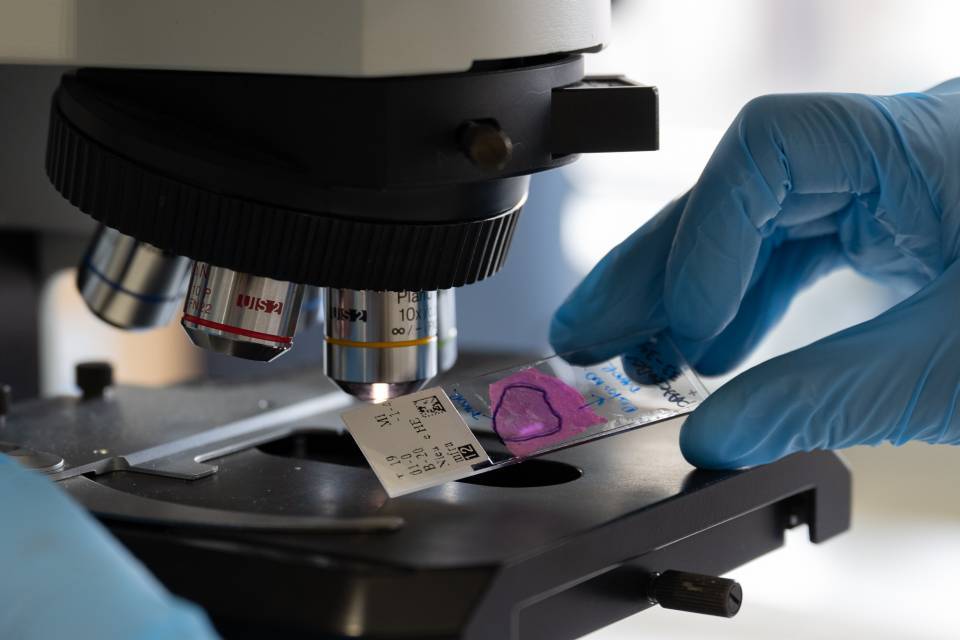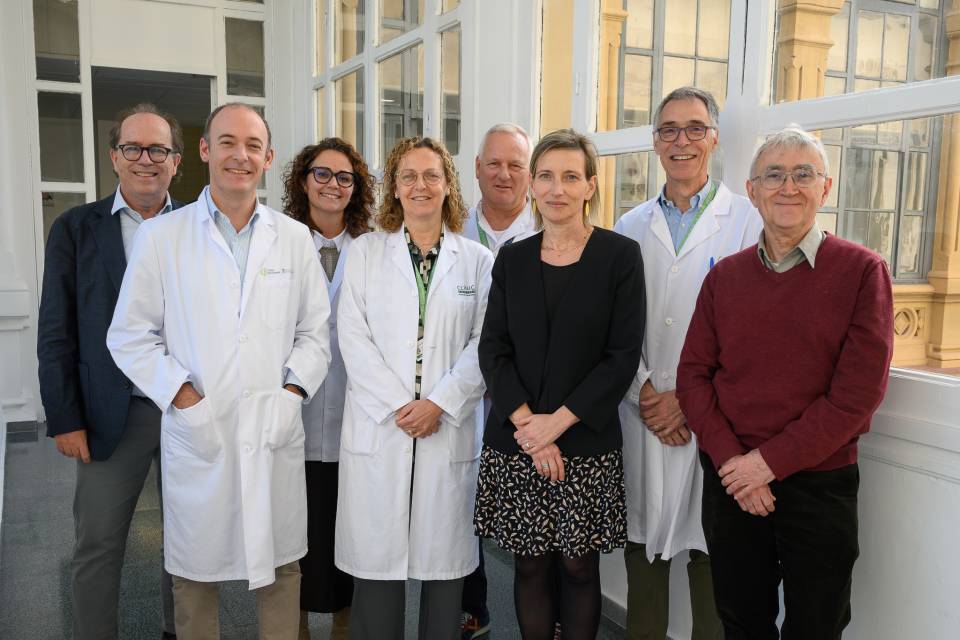Research - Unit of Uro-Oncology Unit
The Urological Oncology Unit of the Hospital Clínic de Barcelona carries out intense research activity through the August Pi i Sunyer Biomedical Research Institute (IDIBAPS).
In the last four years, more than 300 articles have been published in journals indexed in PubMed, reflecting the high scientific level of the unit.
Currently, several lines of research are being developed, shared between different laboratories, among which the following stand out:
- Therapeutic response in muscle-invasive bladder cancer: Study of the mechanisms of resistance and sensitivity to treatment in this type of cancer.
- Circulating tumour cell isolation in prostate cancer: Research focused on the detection and characterization of tumour cells present in the bloodstream, with the aim of improving the diagnosis and monitoring of the disease.
- Relationship between intermittent hypoxia from obstructive sleep apnoea and the aggressiveness of renal cancer: Analysis of how intermittent oxygen deprivation can influence the aggressive behaviour of renal tumours.
Other areas of research include:
- Molecular diagnosis of bladder and prostate cancer: Development of biomarkers that allow for earlier and more accurate detection of these tumours.
- Molecular characterization of urinary tract tumours: Study of the genetic and molecular alterations present in these tumours, in order to identify new therapeutic targets.
- Molecular characterization of castration-resistant prostate cancer: Research into the mechanisms that allow the tumour to continue to grow despite hormonal therapy, with the aim of developing new treatments.
- Therapeutic response pathways in prostate cancer: Analysis of the molecular pathways involved in the response to treatment, in order to optimize therapeutic strategies.
Clinical Research and Clinical Trials
The Urological Oncology Unit of the Hospital Clínic de Barcelona maintains a strong commitment to clinical research, with the aim of improving treatment and outcomes in patients with urological cancer. This commitment is reflected in the active participation in numerous clinical trials covering different phases of therapeutic development.
The unit has two clinical trial units that promote clinical research, with more than 30 open trials in the field of uro-oncology. This infrastructure allows for active participation in studies that evaluate new therapies and diagnostic strategies, offering patients access to innovative treatments.
Ongoing clinical trials
The unit is currently participating in more than 40 clinical trials in the field of uro-oncology. These studies include:
- Phase I trials: These assess the safety and optimal dosage of new drugs or therapeutic combinations in patients with advanced urological tumours.
- Phase 2 trials: These analyse the preliminary efficacy and side effects of therapies under development.
- Phase 3 trials: These compare new treatments with standard therapies to establish their efficacy and safety in a wider population.
Areas of research
The lines of clinical research are focused on:
- Immunotherapy: Exploration of new strategies that enhance the immune system to combat urological tumours.
- Targeted Therapies: Development of drugs that act on specific molecular targets present in tumour cells.
- Therapeutic Combinations: Study of the synergy between different treatment modalities, such as chemotherapy, radiotherapy and immunotherapy.
- Personalized Medicine: Application of biomarkers to adapt treatments to the individual characteristics of each patient.
Support Infrastructure
The unit has a robust infrastructure for conducting clinical trials, which includes:
- Clinical Trials Unit: Multidisciplinary team specialized in the management and execution of clinical studies, ensuring compliance with ethical and scientific standards.
- Clinical Trial Coordinators: Professionals dedicated to the organization and monitoring of trials, ensuring fluid communication between patients and the medical team.
- Support from Specialized Nurses: nurses with specific training in clinical research who provide care and information to participants in the studies.
Benefits for patients
Participation in clinical trials offers patients access to innovative therapies that may not be available outside the research setting. Furthermore, it contributes to scientific progress and advances in the treatment of urological cancer, benefiting future patients.
This integrated approach to clinical research reaffirms the Urological Oncology Unit’s commitment to excellence in care and continuous improvement in patient care.
Furthermore, the unit collaborates with other institutions and participates in national and international research networks, contributing to scientific progress in the field of urological oncology. This commitment to research leads to continuous improvement in patient care and the application of the latest scientific evidence in clinical practice.


